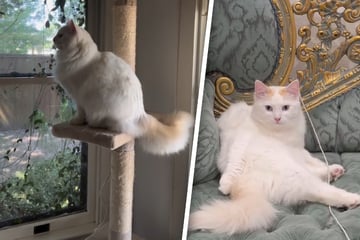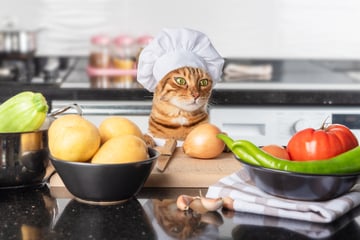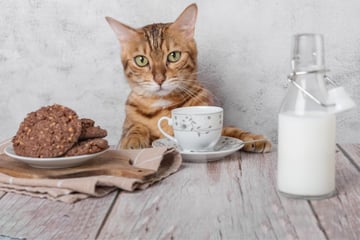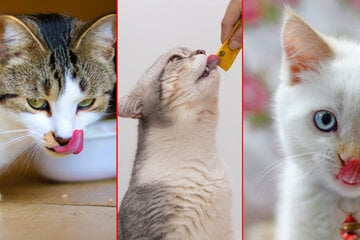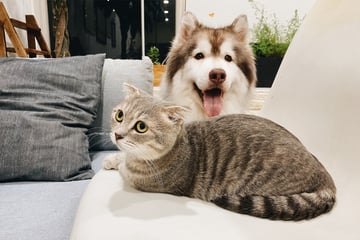Can cats eat garlic?
Garlic is one of the most delicious ingredients out there, perfect for fleshing out your favorite pasta dishes or simply spreading on bread. Yet, for cats, such ingredients can often be dangerous. So, can cats eat garlic?
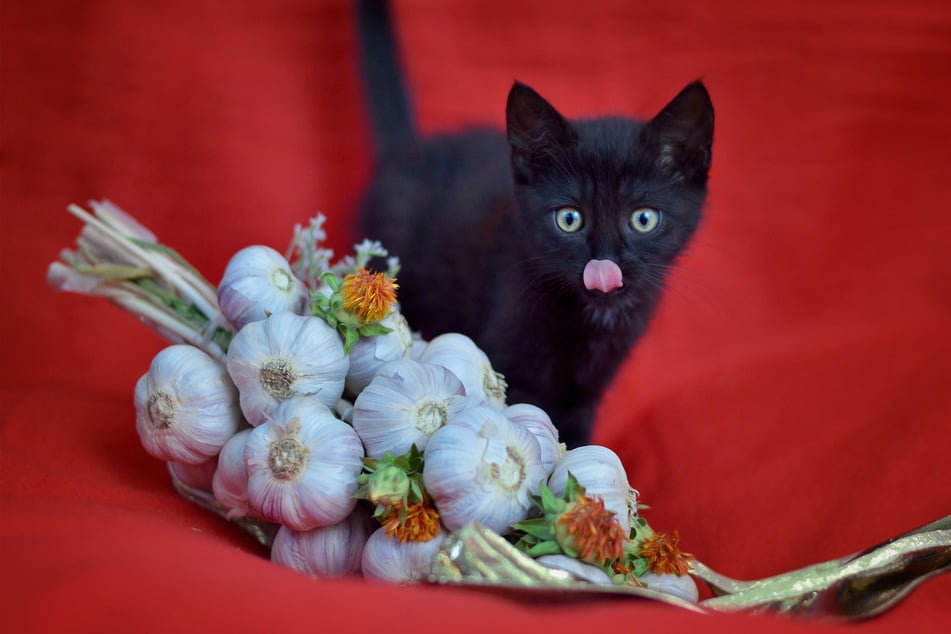
Cats aren't the biggest fans of pasta or bread, but they can often get pretty excited by butter or – infamously – yogurt.
Seeing as they're pretty avid dairy fans – which is unfortunate, given their lactose intolerance – and garlic is often paired with such products, are these small little bulbs okay for consumption by our furry friends?
TAG24's cat guide is here with all the answers you need!
Is it okay for cats to eat garlic? And, if not, what are the symptoms of garlic poisoning?
Is it okay for cats to eat garlic?
Under no circumstances should a cat eat garlic, as even a single clove can be extremely toxic. A cat who has eaten garlic should be taken immediately to the veterinarian as it should be treated as a poisoning, extremely dangerous and potentially deadly. Be very cautious, this is a serious matter.
Garlic contains extremely harmful compounds called disulfides and thiosulfates, which are also found in onions and, indeed, all members of the allium family. Ingestion of such chemicals can cause severe harm to both dogs and cats, and when consumed in too high a quantity, can be deadly.
This is not a matter of "a little bit will be OK." If your cat eats any garlic, in any form, you need to take it to the vet immediately.
Can cats eat cooked garlic?
Cooked garlic is just as dangerous for a cat as raw garlic, and should never be eaten. Consumption of cooked garlic on any food, whether it be some kind of meat, a sauce, or something similar, can quickly lead to severe illness and even death if eaten in large enough quantities.
Can cats eat garlic powder?
Garlic powder is actually more dangerous than standard or cooked garlic, as it is in a condensed form. The powdering process actually intensifies the presence of the dangerous compounds found in garlic. As a result, if you ever cook food with garlic powder in it, you should never give your cat a taste of that dish, no matter how much it insists on it. Such a decision could prove deadly.
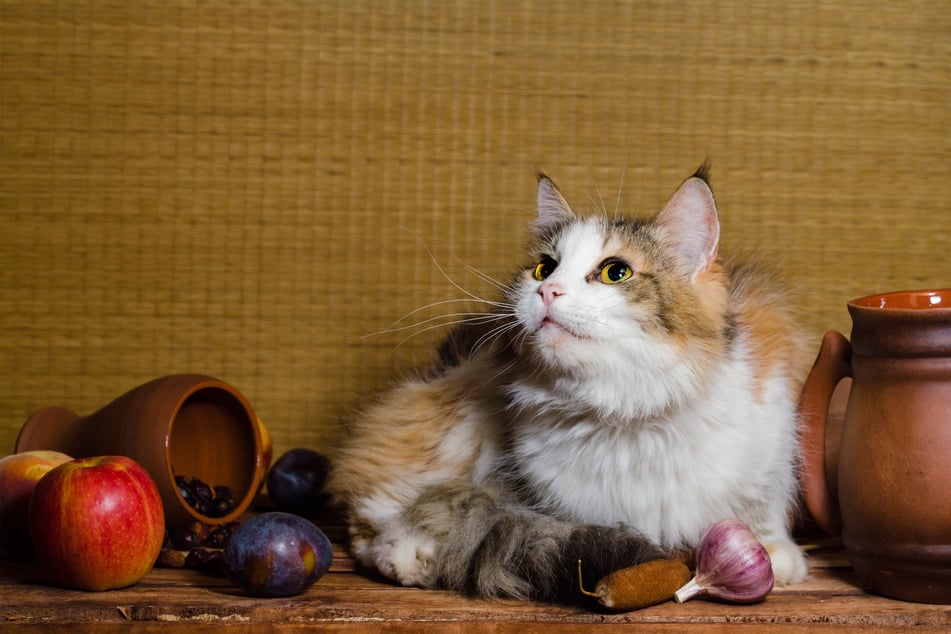
What are the symptoms of garlic poisoning in cats?
Within a very short period of your cat having consumed garlic, it will start to display symptoms. These signs range from severe to minor to utterly innocuous (like, for example, garlic breath). It's worth recognizing this fact as it can be quite difficult to identify why your cat is behaving strangely, so it's a good idea to memorize the symptoms we're about to describe.
The reality of the matter is that it's quite unlikely that you'll actively witness your cat eating the stuff unless you have mistakenly fed it to your kitty. Instead, it is more likely that your beloved fluffy friend scavenged it off of the floor after you had completed a cooking session. As such, it's vitally important to know what the symptoms are so that you can recognize garlic poisoning when it happens.
Here are the key symptoms of garlic poisoning in cats:
- Bad garlic breath, similar to what your partner smells like after a flavorful feed full of garlic
- Severe and sudden fatigue and lethargy, increased laziness
- A sense of weakness or even wobbliness on its legs
- Anemia and a look of jaundice, with a growing yellow tinge
- Hyperventilating, fast breathing, and difficulty breathing
- Increased salivation and a loss of control over bodily functions
- Vomiting
- Diarrhea
- Lack of appetite
- Urine discoloration
- Extreme pain causing a variety of symptoms:
- Abnormal postures and positions
- Increased anger and stress
- Body language changes and anguished or unhappy facial expressions
- Habitual changes
- Howling and unpleasant sounds
- Extreme cases of causes can cause extreme symptoms such as:
- Collapse
- Shutting down of bodily functions
- Heart failure
Keep in mind that this is not an exhaustive list. If your cat behaves in a worrying way, or if you suspect that it has eaten any garlic at all, go straight to the veterinarian.
How to treat garlic poisoning in cats
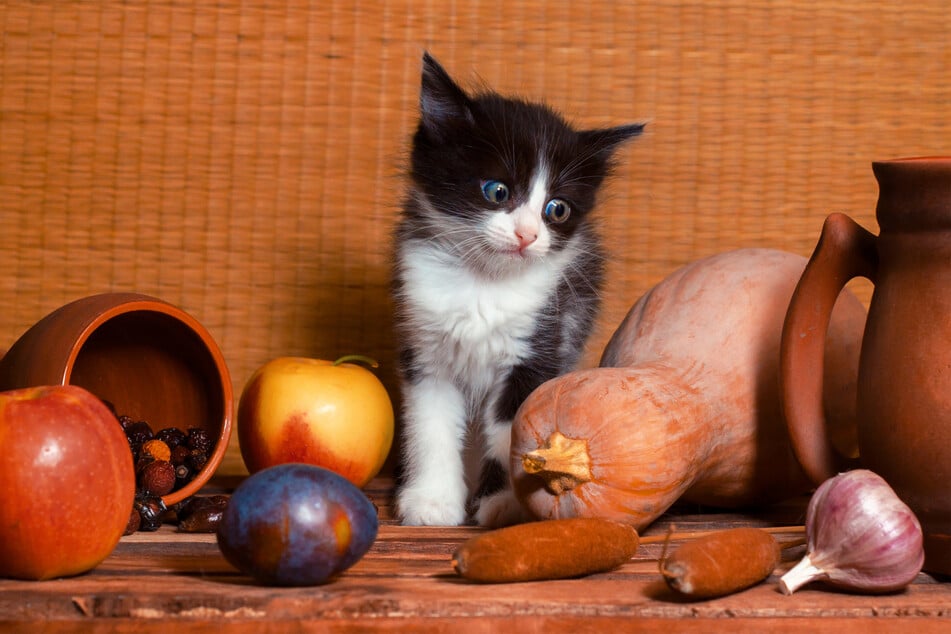
There is nothing that you can do to treat your cat for garlic poisoning at home, so you need to take it to the vet. This is a serious issue, like being bitten by a poisonous snake or having a severely broken limb, and not something that should ever be looked at as treatable with home remedies.
Cat owners often take to the internet for home remedies for their pet's severe health issues, but you should recognize that you're not a medical professional and won't find a solution to every problem online. A cat with garlic poisoning needs urgent medical attention, not some random online theory that probably uses baking powder for some reason.
If your cat has consumed garlic, or is suffering from the symptoms of garlic poisoning, take it to the vet immediately. There, they will likely have their stomach pumped and be given a variety of drugs to help them recover.
What makes garlic so dangerous for cats and dogs?
As we briefly mentioned earlier, garlic is dangerous because it contains disulfides and thiosulfates which cause a variety of conditions that damage red blood cells. These conditions, including various kinds of anemia, as well as methomoglobinemia – a blood disorder – and a few others, have the potential to cause your cat's blood cells to burst. This can very easy turn deadly if left untreated.
Even very small quantities of garlic can be deadly, as it will attack your kitty's circulatory system, first causing a variety of minor-to-medium intensity symptoms and, eventually, severe health issues and death. Additionally, the anemia set in by garlic means that your cat's organs aren't getting enough oxygen – this quickly leads to organ failure.
In the end, though, it isn't all that important to understand why garlic is so dangerous for cats. Instead, it's simply important to know that it's extremely dangerous and can quickly become deadly. Be careful out there, especially when cooking around your kitty.
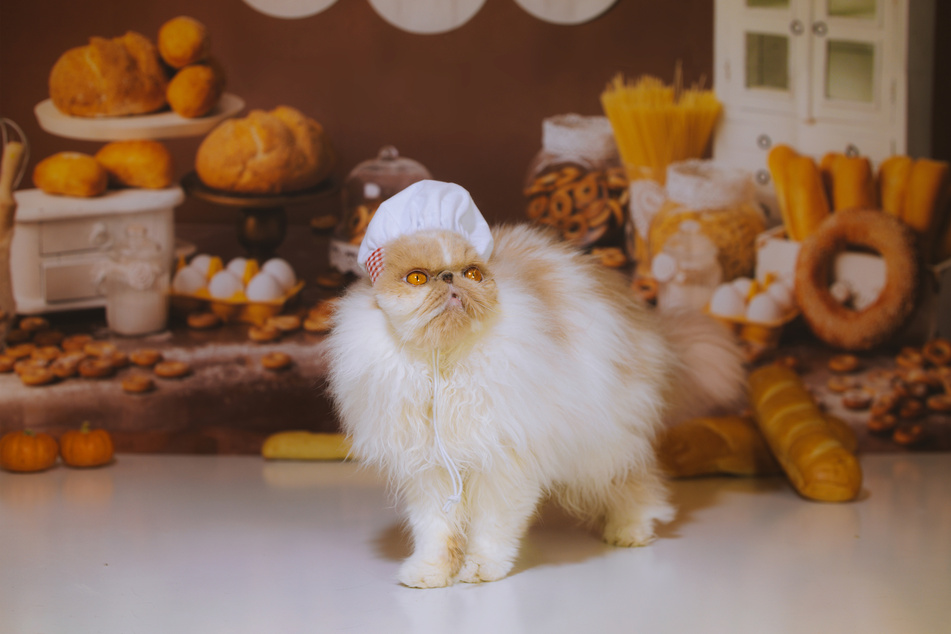
Even a small amount of garlic is extremely dangerous for cats!
Large quantities of garlic can cause some pretty serious harm to your beloved furry friend, and even tiny amounts on chicken or in their favorite sauce has the potential to cause serious harm. Any allium has the potential to kill a cat if ingested, and garlic is possibly the worst of them all.
If your cat consumes any garlic, or displays any symptoms of garlic poisoning after you have cooked food with garlic in it, your first move should be to take it to the vet. As usual, try not to panic, but stay vigilant and make careful and prudent choices.
Cover photo: IMAGO/Pond5 Images
